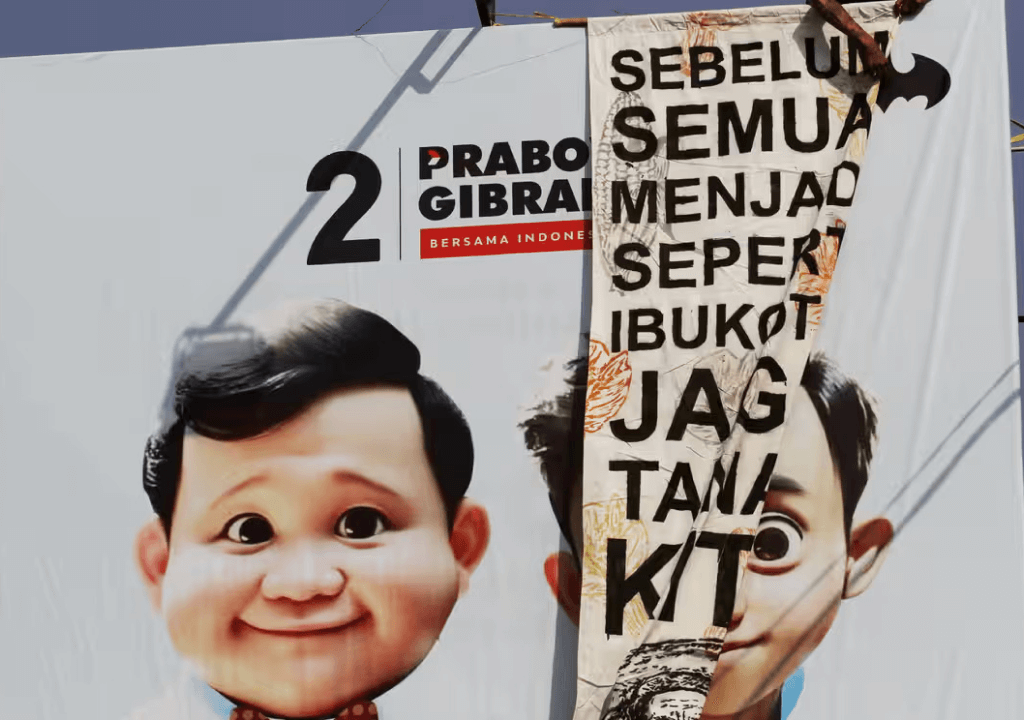Prabowo, the former son-in-law of the late dictator Suharto, is currently on the path to secure the presidency in Indonesia. He has gained popularity among young voters by utilizing his Instagram presence to project a charming, soft, and humorous personality. Despite Prabowo’s contentious history as a former general dismissed from the military amid allegations of kidnapping and torture, the majority of the public appears indifferent to these issues.
Indonesian President Joko Widodo is set to follow Suharto’s example by seeking to establish his own political dynasty in Indonesia through democratic means. According to reports from Indonesian media, Prabowo, supported by the eldest son of the current president, Joko Widodo, is taking the lead in election campaigns in Indonesia.
Indonesia has a history of influential political families. During President Suharto’s 32-year rule, his eldest daughter held a cabinet minister position. Megawati Sukarnoputri, the daughter of Indonesia’s first president Sukarno, not only served as president but also leads the largest party in parliament, while her daughter holds the position of speaker of the house. Much like the Nehru Family in India, the Sukarno family has consistently played a role in the administration of Indonesia, either in the public eye or behind the scenes.
In addition to the Sukarno family legacy, President Widodo is now in the process of establishing his own political dynasty. His youngest son, Kaesang Pangarep, assumed leadership of the Indonesian Solidarity Party (PSI) last month, shortly after joining the party. Meanwhile, his son-in-law serves as the mayor of Medan, and his eldest son, Gibran Rakabuming Raka, currently the mayor of Solo, is now a candidate for vice president. Despite controversies surrounding their alliance, such as a constitutional court ruling that created an exception to age restrictions for Gibran, concerns about dynasty-building do not appear to have adversely affected their performance in polling.
In spite of his controversial past, Prabowo, in collaboration with the eldest son of the outgoing president, Joko Widodo, is emerging as the leading candidate in pre-election surveys for the upcoming vote in Indonesia, the world’s third-largest democracy. Analysts predict that this election may further cement entrenched political dynasties, with social media playing a crucial role as the primary battleground for candidates.
Prabowo is actively pursuing a significant rebranding effort. Formerly known as the son-in-law of the late dictator Suharto, he faced allegations of involvement in the kidnapping and torture of pro-democracy activists in the late 1990s, along with implications in human rights abuses in Papua and East Timor. Despite a prior travel ban to the US, which was lifted after he assumed the role of defence secretary in 2019, Prabowo consistently denies any wrongdoing and has never been formally charged in connection to these allegations. Presently, he is showcasing a more playful side, engaging in hip-wiggling and arm-waving – actions that have gained popularity on TikTok, where users affectionately refer to him as “Gemoy,” meaning cute. On Instagram, his account features moments of him cuddling and kissing his cat, complemented by poses of him making heart gestures. Supporters even proudly wear hoodies adorned with a charming cartoon representation of the politician.
Prabowo has committed to maintaining the policies of Jokowi, including the development of Nusantara, a new capital city on Borneo. His assurances encompass initiatives such as providing free lunches and milk for schoolchildren from preschool to senior high, along with pregnant women. Additionally, he vows to eliminate extreme poverty within a span of two years.
Running against Prabowo are former Jakarta governor Anies Baswedan and former provincial governor Ganjar Pranowo. Some voters express concerns about Anies’ past campaign tactics during the 2017 Jakarta governor race, accusing him of accommodating Islamists to defeat his rival, a Christian from the ethnic Chinese minority—allegations he denies. At 55, Ganjar commits to reviewing a controversial job creation law enacted under Jokowi, criticized for undermining workers’ rights and environmental protections. While avoiding criticism of the president’s economic policies, Ganjar has faced controversies in his role as provincial governor, including disputes over a mine development in Central Java that drew criticism from villagers and activists.
Like many other Asian democracies, Indonesia is influenced by political dynasties. In the current trend, Sukarno’s son and Widodo’s son are positioned to lead the nation. The election on February 14th is not anticipated to bring about any surprises, as people align themselves with the social media branding of Prabowo. Moreover, the notion that “political dynasties are an established reality that must be adhered to and accepted” is deeply embedded in the public mindset.








